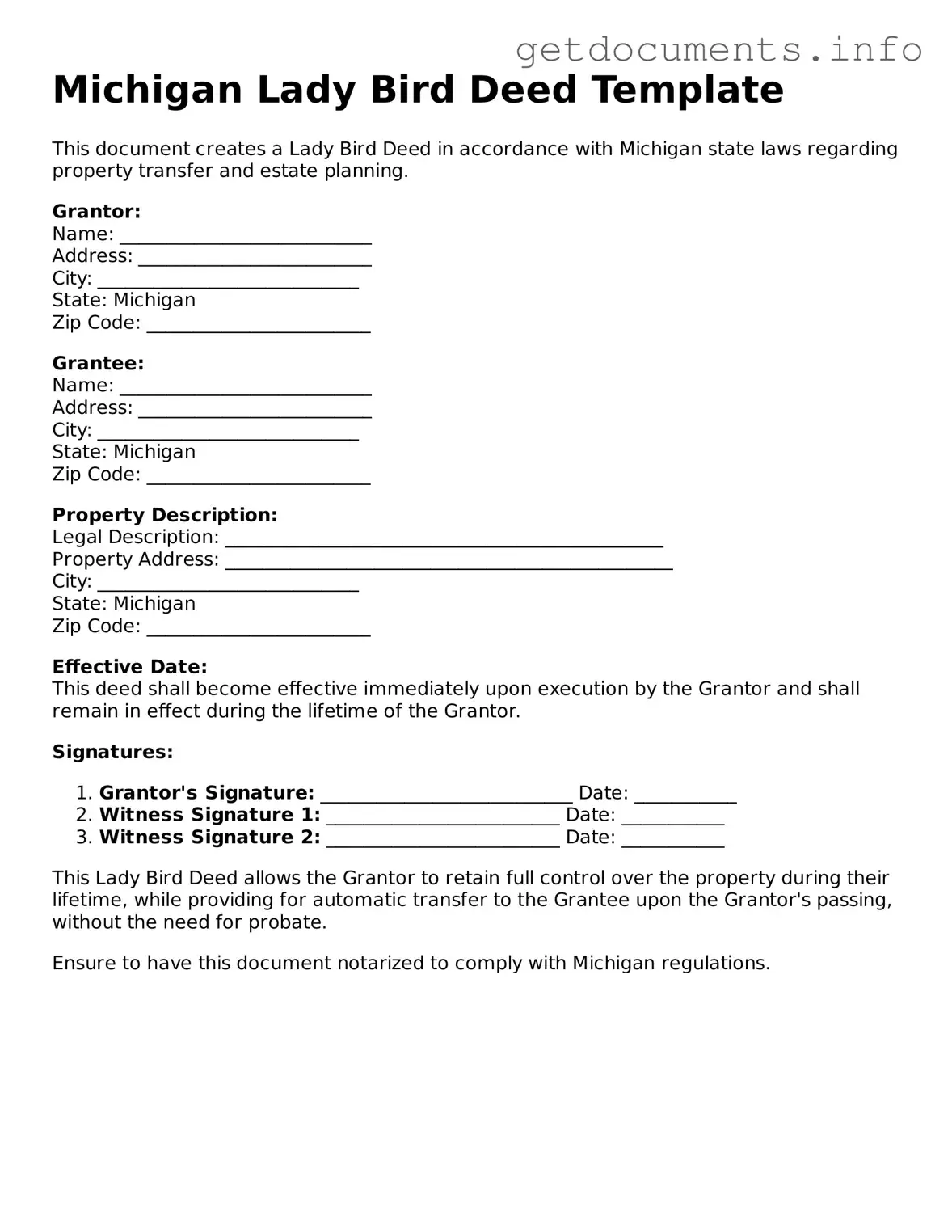Free Lady Bird Deed Template for Michigan
The Michigan Lady Bird Deed form is a legal document that allows property owners to transfer real estate to beneficiaries while retaining certain rights during their lifetime. This unique form provides a way to avoid probate, ensuring a smoother transition of property upon the owner's death. Understanding the benefits and implications of this deed can empower individuals to make informed decisions about their estate planning.
Ready to take control of your estate planning? Fill out the Lady Bird Deed form by clicking the button below.
Access Lady Bird Deed Editor

Free Lady Bird Deed Template for Michigan
Access Lady Bird Deed Editor
Got places to be? Complete the form fast
Fill out Lady Bird Deed online and avoid printing or scanning.
Access Lady Bird Deed Editor
or
⇩ PDF File
